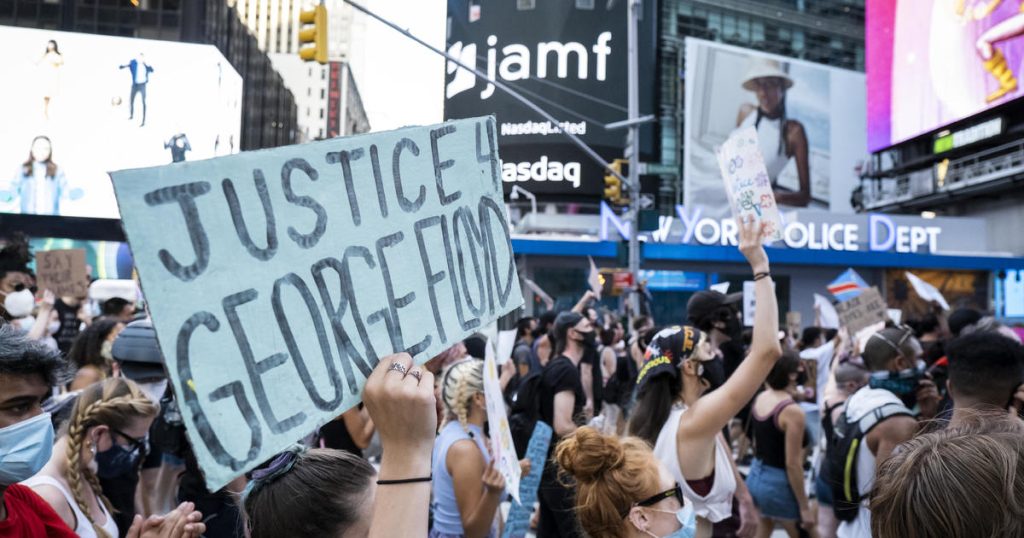Four years after George Floyd’s murder in Minneapolis, the momentum in Washington to pass sweeping reform in his name has almost faded away completely. Despite the initial outrage and calls for change sparked by Floyd’s death, Democrats and Republicans in Congress have failed to come together to make the kind of sweeping changes that President Biden has wanted to see. The lack of urgency in addressing police reform issues could have implications for the 2024 elections as Biden contends with the prospect of his support softening with Black voters, who are key to his re-election efforts.
There have been continued killings by police since Floyd’s death, including the death of Tyre Nichols, a Black man, in early 2023. Republican Senator Tim Scott, the only Black Republican in the Senate, gave a speech faulting Democrats and politics for the lack of progress in police reform efforts. Scott, who had authored a bill of his own after Floyd’s death that was blocked by Senate Democrats, emphasized the need for bipartisan collaboration to address the pain felt by the American people. However, less than a year and a half later, Scott is now viewed as a potential running mate for presumptive Republican presidential nominee Donald Trump, highlighting the complexities and challenges in passing policing changes through Congress.
President Biden made addressing the issues brought to light by Floyd’s murder a focus of his presidential campaign and called on Congress to find a path forward to address police reform. Despite bipartisan negotiations, Congress failed to meet the president’s timeline, and the talks eventually fell apart. Attention on the issue in Congress has waned considerably, with Republicans trying to associate Democrats with the politically volatile “defund the police” slogan, even though most congressional Democrats do not support that movement. Biden has taken limited executive action on policing changes but has not been able to achieve the sweeping reforms he envisioned.
Policing remains a deeply personal issue for many Americans, particularly in Black communities where relationships with law enforcement are strained. Community activists like Bridgette Stewart in Minnesota and Nate Hamilton, who lost his brother to police violence in 2014, continue to push for police reform and accountability. There is recognition within the law enforcement community that local police departments have made changes in response to the outcry following Floyd’s death. However, congressional inaction on passing reform legislation has been a source of frustration for Floyd’s family, despite continued calls for reform from Biden and other Democrats.
While the Fraternal Order of Police president Patrick Yoes argues that there has been reform at the local level despite congressional inaction, Floyd’s family continues to advocate for change in his name. George Floyd’s brother, Philonise Floyd, has been visiting Washington to make his case for reform, emphasizing the importance of passing legislation to address systemic issues in policing. As the political landscape shifts with Republicans now holding the House, the prospects for passing a police reform bill this year are uncertain. Despite setbacks, the Floyd family remains committed to seeking justice and reform as they continue to honor George Floyd’s memory.


